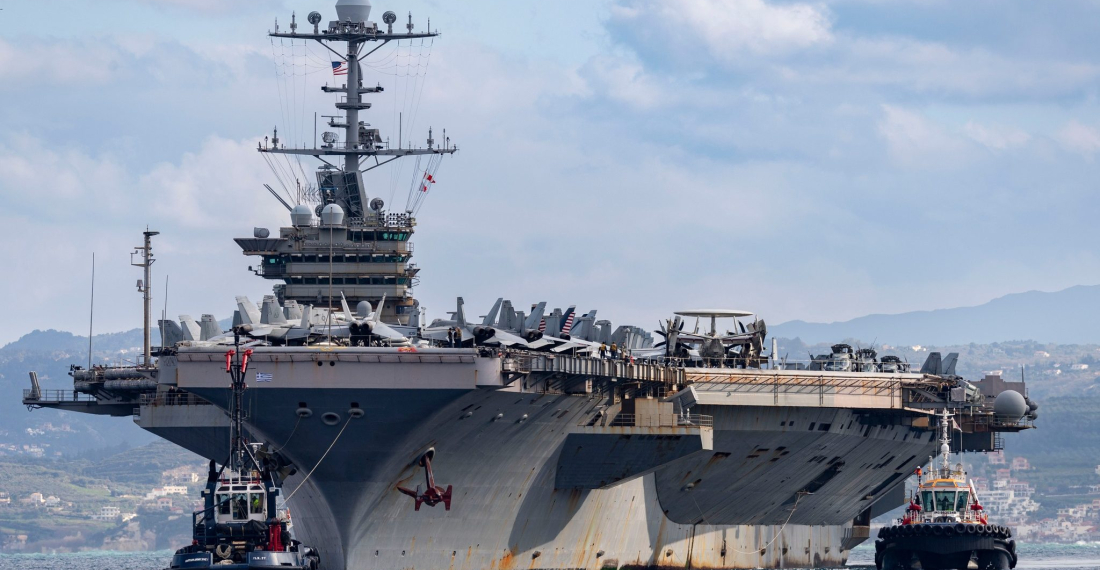The US has launched what it called a decisive and powerful wave of air strikes on Houthi targets on Saturday as part of efforts to stop Houthi attacks on shipping in the Red Sea. Yemen's Houthi rebels say there have been fresh US strikes against them, with the number of dead rising to 53, including five children. Targets in the Al Jaouf and Hudaydah areas were hit early on Monday, according to the rebel group, while the US Central Command said its forces had continued operations throughout the weekend. Washington says some key Houthi figures are among the dead, but the group has not confirmed this.
Houthi leader Abdul Malik al-Houthi said his militants would target US ships in the Red Sea as long as the US continued its attacks on Yemen. Updating an earlier death toll, Houthi health ministry spokesperson Anis al-Asbahi posted on X that 53 people had been killed including "five children and two women", and that 98 people had been wounded.
One father of two, who gave his name as Ahmed, told the AFP news agency: "I've been living in Sanaa for 10 years, hearing shelling throughout the war. By God, I've never experienced anything like this before." US National Security Advisor Michael Waltz told ABC News that Saturday's strikes "targeted multiple Houthi leaders and took them out". He told Fox News: "We just hit them with overwhelming force and put Iran on notice that enough is enough."
US Defence Secretary Pete Hegseth vowed an "unrelenting" missile campaign until the Houthi attacks stop. "I want to be very clear, this campaign is about freedom of navigation and restoring deterrence," Hegseth said in a televised Fox Business interview. The Houthis said it would continue to target Red Sea shipping until Israel lifted its blockade of Gaza, and that its forces would respond to the strikes.
The Iranian-backed rebel group, which considers Israel its enemy, controls Sanaa and the north-west of Yemen, but it is not the country's internationally-recognised government.
The Houthis have said they are acting in support of the Palestinians in the war between Israel and Hamas in Gaza, and have claimed - often falsely - that they are targeting ships only linked to Israel, the US or the UK.
Since November 2023, the Houthis have targeted dozens of merchant vessels with missiles, drones and small boat attacks in the Red Sea and the Gulf of Aden. They have sunk two vessels, seized a third, and killed four crew members.
Announcing Saturday's strikes, Trump said "we will use overwhelming lethal force until we have achieved our objective". "Funded by Iran, the Houthi thugs have fired missiles at US aircraft, and targeted our Troops and Allies," Trump said on social media, adding that their "piracy, violence, and terrorism" had cost "billions" and put lives at risk.
Addressing the Houthis directly, Trump wrote that if they did not stop, "HELL WILL RAIN DOWN UPON YOU LIKE NOTHING YOU HAVE EVER SEEN BEFORE". But the Houthis have been unwavering in their response, saying the aggression would not diminish their support for Palestinians.
Iran's Foreign Minister Abbas Araghchi said the US government had "no authority, or business, dictating Iranian foreign policy". "End support for Israeli genocide and terrorism," he posted on X on Sunday. "Stop killing of Yemeni people."
The Houthis have claimed responsibility, without offering evidence, for two attacks on the US aircraft carrier USS Harry S. Truman and several American warships in the Red Sea, calling it retaliation for US strikes. But a US official told Reuters news agency that US warplanes shot down 11 Houthi drones on Sunday, none of which came close to the Truman. The US is yet to respond to the second claim of such a strike.
UN Secretary-General Antonio Guterres on Sunday called for "utmost restraint and a cessation of all military activities" in Yemen.






